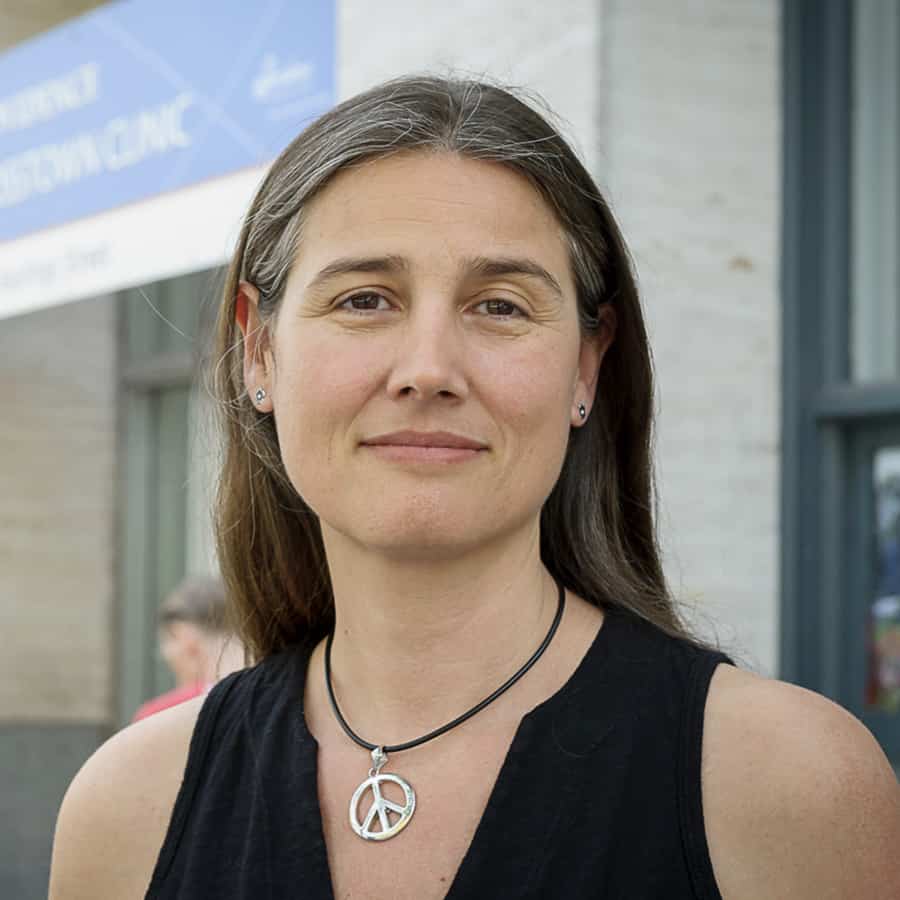World is watching CHÉOS’ innovative opioid studies, trials
Research scientist Dr. Eugenia Oviedo-Joekes reads from some of the collected letters, handwritten by patients in an opioid dependence treatment program, the truthfulness of the words too raw to ever be in doubt.
“I spent 22 years in prison,” reads one, “because I had to support my addiction.”
“The drugs on the street are insanely potent,” warns another. “People are overdosing and dropping like flies.”
“Try to remember,” pleads yet another, “that the people in this program have tried other treatment options, to no avail.”
In the midst of BC’s opioid crisis, it’s that third quote that speaks to the sincere effort of people trying to start a path to recovery. Many are trying again after previous treatment attempts. This kind of effort deserves our respect and support.
It inspires the work of Dr. Oviedo-Joekes and her colleagues at the Centre for Health Evaluation and Outcome Sciences at St. Paul’s (CHÉOS), where two recent studies, unique in the world of addiction medicine, are providing options—and hope—in some of the darkest days of the opioid crisis.
Options encourage patients to stay in care
The authors of the letters were participants in the SALOME study (Study to Assess Longer-term Opioid Medication Effectiveness), for which Dr. Oviedo-Joekes was Principal Investigator.
The findings of SALOME cited hydromorphone, a licensed pain medication, as an effective treatment for long-term opioid dependence. This was big news as it meant an effective and accessible alternative to treatments such as methadone and suboxone, which have been shown to be ineffective with some patients, and also diacetylmorphine (a.k.a. ”prescription heroin”), which is currently not an option in most countries because it is deemed illegal.
The SALOME findings were published in the psychiatric edition of the Journal of the American Medical Association in the spring of 2016 to international attention and acclaim.
Now rolling out in the wake of SALOME’s success is the RUTH study (Research on the Utilization of Therapeutic Hydromorphone). RUTH’s objective is to put SALOME into action. Dr. Oviedo-Joekes, whose main research area is public health and addictions with a focus on testing alternative treatment approaches for vulnerable populations, is also Principal Investigator of the RUTH study.
“We can’t force treatments on patients,” says Dr. Oviedo-Joekes. “It can’t be just methadone or buprenorphine because these treatments don’t work for everyone. With addiction, things are different. We need to say, ‘If first- line treatments are not working, we have options for you.’ We need to meet patients where they are, and offer alternatives so they will stay engaged in care.”
While some may question treating addiction to one injectable drug with another, according to Dr. Oviedo-Joekes the bigger question is: What is the alternative?
“If people are not engaged in care,” Dr. Oviedo-Joekes says, “they are on the street injecting unknown doses of unknown substances. In that setting, with every injection they risk death. Prescribing pharmaceutical-grade opioids to those already injecting provides an opportunity to keep them safe and engage them into care. If we are brave enough to start prescribing injectables like hydromorphone, we can really start bringing some change.”
Dr. Oviedo-Joekes also speaks to the critical importance of options when it comes to opioid dependence.
“People find themselves at different points of their struggle with substance dependence. The health care system needs to provide a wide range of opportunities for getting better. Injectables are just one of those opportunities. Look at insulin. It’s a drug and diabetics inject it. Is injecting hydromorphone that different?”
The opioid crisis: You can help right now
St. Paul’s Foundation is a supporter of CHÉOS, including the SALOME study. Today we encourage you to give to CHÉOS to support such vital and important work.
